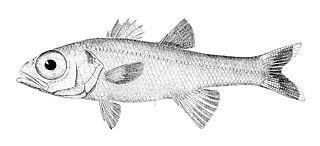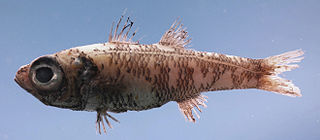Related Research Articles

An epigram is a brief, interesting, memorable, sometimes surprising or satirical statement. The word derives from the Greek ἐπίγραμμα. This literary device has been practiced for over two millennia.

The Greek Anthology is a collection of poems, mostly epigrams, that span the Classical and Byzantine periods of Greek literature. Most of the material of the Greek Anthology comes from two manuscripts, the Palatine Anthology of the 10th century and the Anthology of Planudes of the 14th century.

Anyte of Tegea was a Hellenistic poet from Tegea in Arcadia. Little is known of her life, but twenty-four epigrams attributed to her are preserved in the Greek Anthology, and one is quoted by Julius Pollux; nineteen of these are generally accepted as authentic. She introduced rural themes to the genre, which became a standard theme in Hellenistic epigrams. She is one of the nine outstanding ancient women poets listed by Antipater of Thessalonica in the Palatine Anthology. Her pastoral poetry may have influenced Theocritus, and her works were adapted by several later poets, including Ovid.

Tweedledum and Tweedledee are characters in an English nursery rhyme and in Lewis Carroll's 1871 book Through the Looking-Glass, and What Alice Found There. Their names may have originally come from an epigram written by poet John Byrom. The nursery rhyme has a Roud Folk Song Index number of 19800. The names have since become synonymous in western popular culture slang for any two people whose appearances and actions are identical.
Asclepiades of Samos (Sicelidas) was an ancient Greek epigrammatist and lyric poet who flourished around 270 BC. He was a friend of Hedylus and possibly of Theocritus. He may have been honoured by the city of Histiaea in about 263 BC.

Erinna was an ancient Greek poet. She is best known for her long poem The Distaff, a 300-line hexameter lament for her childhood friend Baucis, who had died shortly after her marriage. A large fragment of this poem was discovered in 1928 at Oxyrhynchus in Egypt. Along with The Distaff, three epigrams ascribed to Erinna are known, preserved in the Greek Anthology. Biographical details about Erinna's life are uncertain. She is generally thought to have lived in the first half of the fourth century BC, though some ancient traditions have her as a contemporary of Sappho; Telos is generally considered to be her most likely birthplace, but Tenos, Teos, Rhodes, and Lesbos are all also mentioned by ancient sources as her home.

The epigonion was an ancient stringed instrument, possibly a Greek harp mentioned in Athenaeus, probably a psaltery.

Epigonidae, the deepwater cardinalfishes, are a family of perciform fishes. The family includes about 43 species.
Epigonus of Pergamum was the chief among the court sculptors to the Attalid dynasty at Pergamum in the late third century BCE.

Epigram is an independent student newspaper of the University of Bristol. It was established in 1988 by James Landale, now a senior BBC journalist, who studied politics at Bristol. Former editor of The Daily Telegraph, William Lewis, was a writer for Epigram in its early years.

Ancient accounts of Homer include numerous passages in which archaic and classical Greek poets and prose authors mention or allude to Homer. In addition, they include the ten biographies of Homer, often referred to as the Lives.

The Palatine Anthology, sometimes abbreviated AP, is the collection of Greek poems and epigrams discovered in 1606 in the Palatine Library in Heidelberg. It is based on the lost collection of Constantine Kephalas of the 10th century, which in turn is based on older anthologies. It contains material from the 7th century BC until 600 AD and later on was the main part of the Greek Anthology which also included the Anthology of Planudes and more material.
Aristo of Ceos was a Peripatetic philosopher and a native of the island of Ceos. His birthplace was the town of Ioulis. He is not to be confused with Aristo of Chios, a Stoic philosopher of the mid 3rd century BC.

Epigonus is a genus of fish in the family Epigonidae found in the Atlantic, Indian and Pacific Ocean. The genus was erected by Constantine Samuel Rafinesque in 1810.
Twenty-nine epigrams are attributed to Plato, mostly in the Greek Anthology. These are short poems suitable for dedicatory purposes written in the form of elegiac couplets. Their authenticity is disputed.

The Anthology of Planudes, is an anthology of Greek epigrams and poems compiled by Maximus Planudes, a Byzantine grammarian and theologian, based on the Anthology of Cephalas. It comprises 2,400 epigrams.
Epigonus is the Latinized form of epigonos. It can refer to:
Seventeen Epigrams were attributed to Homer in antiquity. They are preserved in a number of texts, including the Life of Homer (Pseudo-Herodotus), the Contest of Homer and Hesiod, and the Homeric Hymns.
Nicias of Miletus was an ancient Greek physician, poet and epigrammatist from Miletus. A confidant of Theocritus, he devoted himself to poetry and eight epigrams ascribed to his name survive in a fragmentary state.
References
- ↑ Argentieri, Lorenzo (2007). "Meleager and Philip as epigram collectors". Brills's Companion to Hellenistic Epigram. p. 160.
- ↑ Ypsilanti, Maria (2006). "Lais and her Mirror". Bulletin of the Institute of Classical Studies. 49 (1): 197. doi:10.1111/j.2041-5370.2006.tb00684.x.